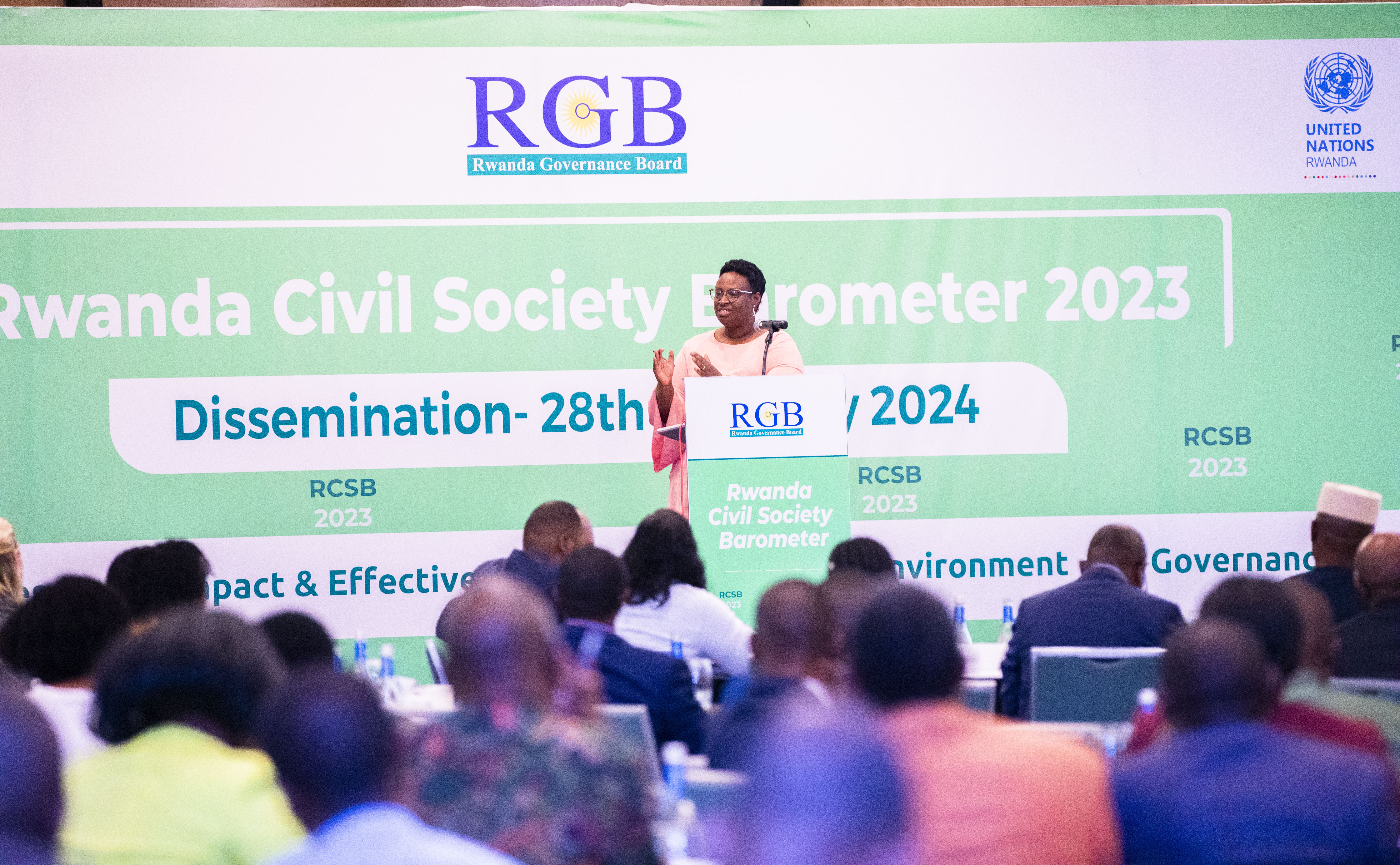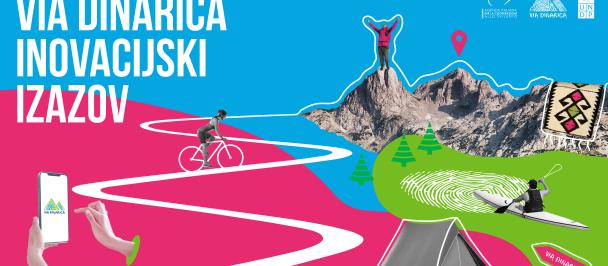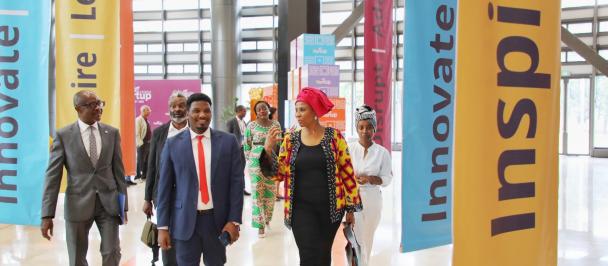By Diane Ineza
Rwanda Civil Society Barometer: Advancing Inclusive Development and Governance
February 28, 2024

Dr. Usta RGB CEO addressing the CSOs organizations at the Baromiter launch
On February 28th, 2024, a significant stride was made in Rwanda's journey towards achieving sustainable development and embracing inclusive governance with the unveiling of the Rwanda Civil Society Barometer 2023. This pivotal report, born from the collaborative efforts of the United Nations Development Programme (UNDP) and the Rwanda Governance Board (RGB), offers an in-depth analysis of the landscape of Civil Society Organizations (CSOs) in Rwanda. It scrutinizes their roles, challenges, and contributions across diverse sectors, serving as a mirror reflecting the vibrant tapestry of Rwanda's civil society.
The Barometer stands as an indispensable tool for CSOs and the government alike, shedding light on pathways for these organizations to amplify their contribution to the national development agenda. It thoroughly evaluates CSOs on various fronts, including participation and inclusiveness, operational environment, governance and values, and overall impact and effectiveness. This assessment is instrumental in nurturing a civil society realm in Rwanda that is transparent, accountable, and participatory.
The launch attracted influential figures, who echoed the critical importance of the Barometer in propelling Rwanda towards its development aspirations. From development partners to government institutions representatives and private sector as well as civil society actors, academia and media.
While unveiling the key insights from the 4th Civil Society Barometer, Judith Kazaire, Head of Political Parties and Civil Society Department highlighted the areas with high performance as well as areas where improvement is needed, including the domain of participation and inclusiveness among others.
Varsha Redkar-Palepu, UNDP's Resident Representative a.i. in Rwanda underscored the essential role of a multifaceted civil society, emphasizing, "It's not just about numbers; it's about leveraging insights and trends that inform how we collectively play our roles towards sustainable development and ensuring no one is left behind." Her remarks underlined the Barometer's strategic importance in shaping actions and policies for comprehensive development.
Dr. Nkurunziza Joseph Ryarasa, Chairperson of the Rwanda Civil Society Platform (RCSP), lauded the Barometer as a guiding "compass for an inclusive society." He advocated for CSOs to pivot towards citizen-centered initiatives to foster greater equity and empowerment, encapsulating a vision for a collaborative society where every stakeholder plays a significant role in national progression.
The launch also served as a forum for vibrant discussions and knowledge exchange. The chairperson of the National Commission for Human Rights applauded the RGB and its partners for the Barometer's dissemination, highlighting its role in pinpointing both achievements and areas needing enhancement, particularly in human rights governance and social protection. Amanda Akaliza, representing HUMEKA, an organization focused on mental health, voiced the challenges encountered by young people in initiating NGOs. She called for more youth-friendly, innovative systems to bolster their participation in civil society.
The Rwanda Civil Society Barometer 2023 serves as a lighthouse for all stakeholders, charting a course towards a more inclusive, equitable, and sustainable future. It not only provides insights into the capacities and challenges of Civil Society Organizations but also carves out recommendations for enhancing their efficacy.
Notably, the Barometer revealed that the Impact and Effectiveness of CSOs scored the highest at 84.24%, followed by Participation and Inclusiveness at 78.76%, and Governance and Values at 73.09%, with the CSO Environment trailing slightly at 73.08%.
In her closing address, Dr. Usta Kaitesi, CEO of the Rwanda Governance Board, accentuated the essence of collaborative development efforts in eradicating poverty emphasizing the collective drive required from the government, CSOs, and other stakeholders to effect meaningful transformation.
The Barometer's findings spotlight the need for reinforced efforts in several areas to elevate CSOs' performance in fulfilling their mandates. Special attention is warranted for improving Civil Society-Private Sector relations, implementing preventive measures against Money Laundering and Terrorist Financing, enhancing citizen participation in promoting transparency and accountability in CSO activities, and optimizing the functioning of National NGO organs.
UNDP’s partnership with civil society actors spans multiple domains, including programme implementation, policy development and advocacy. Through collaborative efforts, with our partners including core partners, UNDP aims to strengthen CSOs, enhance their capacity, and amplify their voices for greater impact and participation in all facets of Agenda 2030 implementation.

 Locations
Locations



